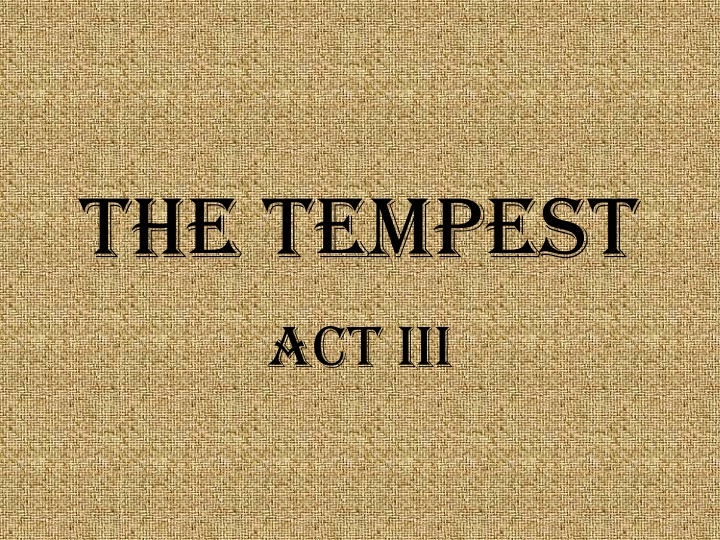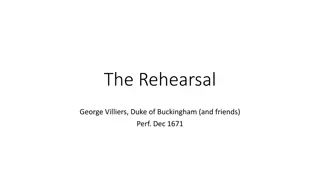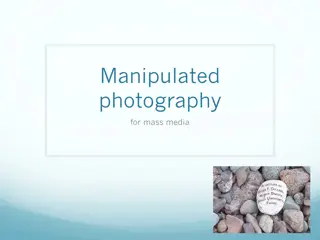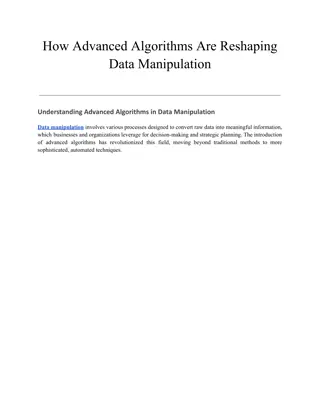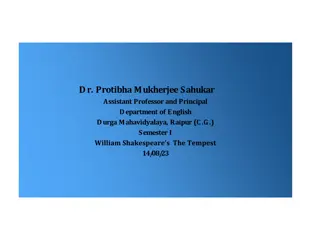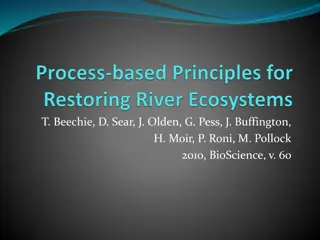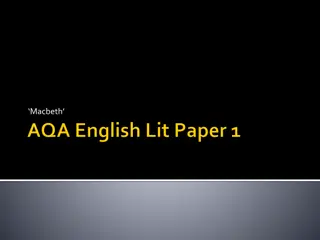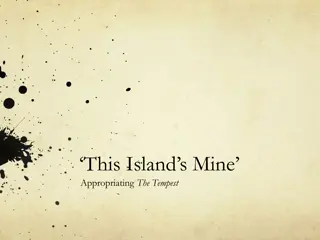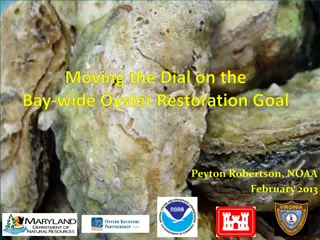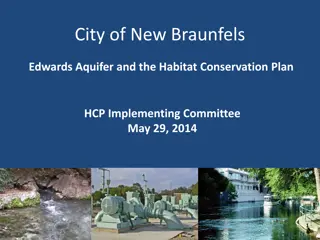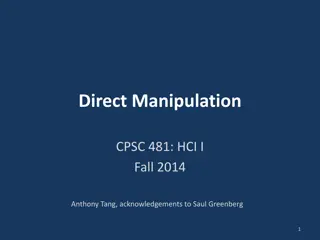Insights into "The Tempest": Power, Manipulation, and Restoration
In Act III of "The Tempest," themes of power, manipulation, and restoration unfold. Ferdinand's labor for Miranda symbolizes love's easing of difficulties. Prospero orchestrates magic and illusion to ensure Miranda and Ferdinand fall in love. Stephano's drunken power play highlights selfish motives for seeking power, critiquing characters like Antonio. Caliban plots to seize Prospero's books for power, hinting at his desire for vengeance. Alonso's despair over losing his son adds depth to the unfolding drama on the island.
Download Presentation

Please find below an Image/Link to download the presentation.
The content on the website is provided AS IS for your information and personal use only. It may not be sold, licensed, or shared on other websites without obtaining consent from the author.If you encounter any issues during the download, it is possible that the publisher has removed the file from their server.
You are allowed to download the files provided on this website for personal or commercial use, subject to the condition that they are used lawfully. All files are the property of their respective owners.
The content on the website is provided AS IS for your information and personal use only. It may not be sold, licensed, or shared on other websites without obtaining consent from the author.
E N D
Presentation Transcript
The Tempest Act III
Loss & Restoration Ferdinand enters, carrying a heavy log. Having been imprisoned and put to work by Prospero, he delivers a soliloquy in which he says that Miranda's love, the cause for which he labors, eases the difficulty of the task.
Magic and illusion The entire interaction between Miranda and Ferdinand has been carefully manipulated by Prospero to make them fall in love and marry. That Prospero watches their conversations unseen, makes his role as the "director" or "playwright" of their affair even more explicit.
Power & colonization Stephano is drunk on power. Commanding Caliban, dispensing favors and rank, and threatening to have people hanged. It's funny because it's so dumb, but it's also a critique of those who seek power for selfish reasons, such as Antonio.
Magic, Illusion & Prospero as Playwright This is another comical scene. It highlights the ways that Prospero uses magic to control and manipulate the other people on the island.
Power Loss & Restoration colonisation Caliban seems to revel in the thought of Prospero's destruction. He knows that Prospero's books are the source of his power, so Caliban demands that Stephano seize the books but not destroy them. The implication is that Caliban might appropriate them and use their power when Prospero is gone. Caliban seems to revel in the thought of Prospero's destruction. He knows that Prospero's books are the source of his power, so Caliban demands that Stephano seize the books but not destroy them. The implication is that Caliban might appropriate them and use their power when Prospero is gone.
Loss & Restoration Alonso's despair at having lost his son may help him empathize with Prospero, who has also suffered great losses. Prospero uses the illusion of the banquet to remind the men of how hungry and desperate they are. The men try to explain the mysteriously appearing banquet based on stories they have heard from explorers of the New World.
Power Loss & Restoration Magic and illusion The banquet's sudden disappearance shows the courtiers how powerless they are. Ariel's rebuke forces them to realize that everything they have lost is a result of their own sinful actions. Prospero uses magic to manipulate and humiliate the men as a way to gain power over them. Now the question remains: What will Prospero do with his newfound power?
Power Loss & Restoration The characters' reactions to the loss of the banquet are consistent with their attitudes toward their past deeds, and foreshadow their reactions to Prospero's future attempts at reconciliation. Alonso is repentant, Antonio and Sebastian are defiant, and Gonzalo acts as caretaker.
Study Questions 1. Why does Ferdinand have a positive attitude about carrying logs? 2. How does Miranda feel about Ferdinand s hard labor of carrying logs? 3. What does Miranda offer to do for Ferdinand? 4. How does Ferdinand respond to Miranda s offer? 5. How does Miranda compare to other women Ferdinand has known? 6. Why does Miranda begin to cry? 7. Why does Ferdinand call himself the king? 8. Who proposes marriage in this scene? 9. What will Miranda do if Ferdinand does not want her for his wife? 10. How does Prospero feel about his daughter s marriage to Ferdinand?
